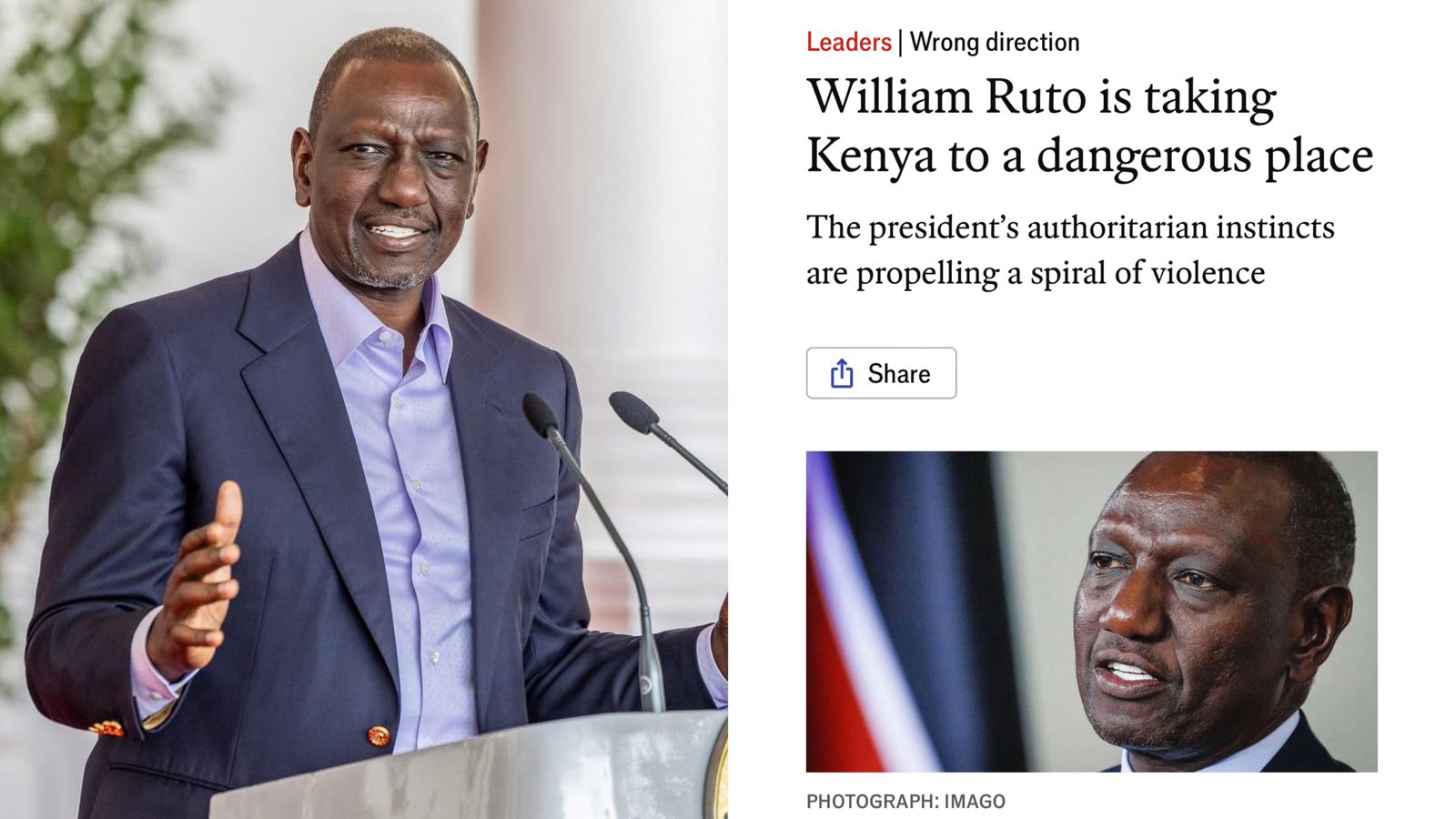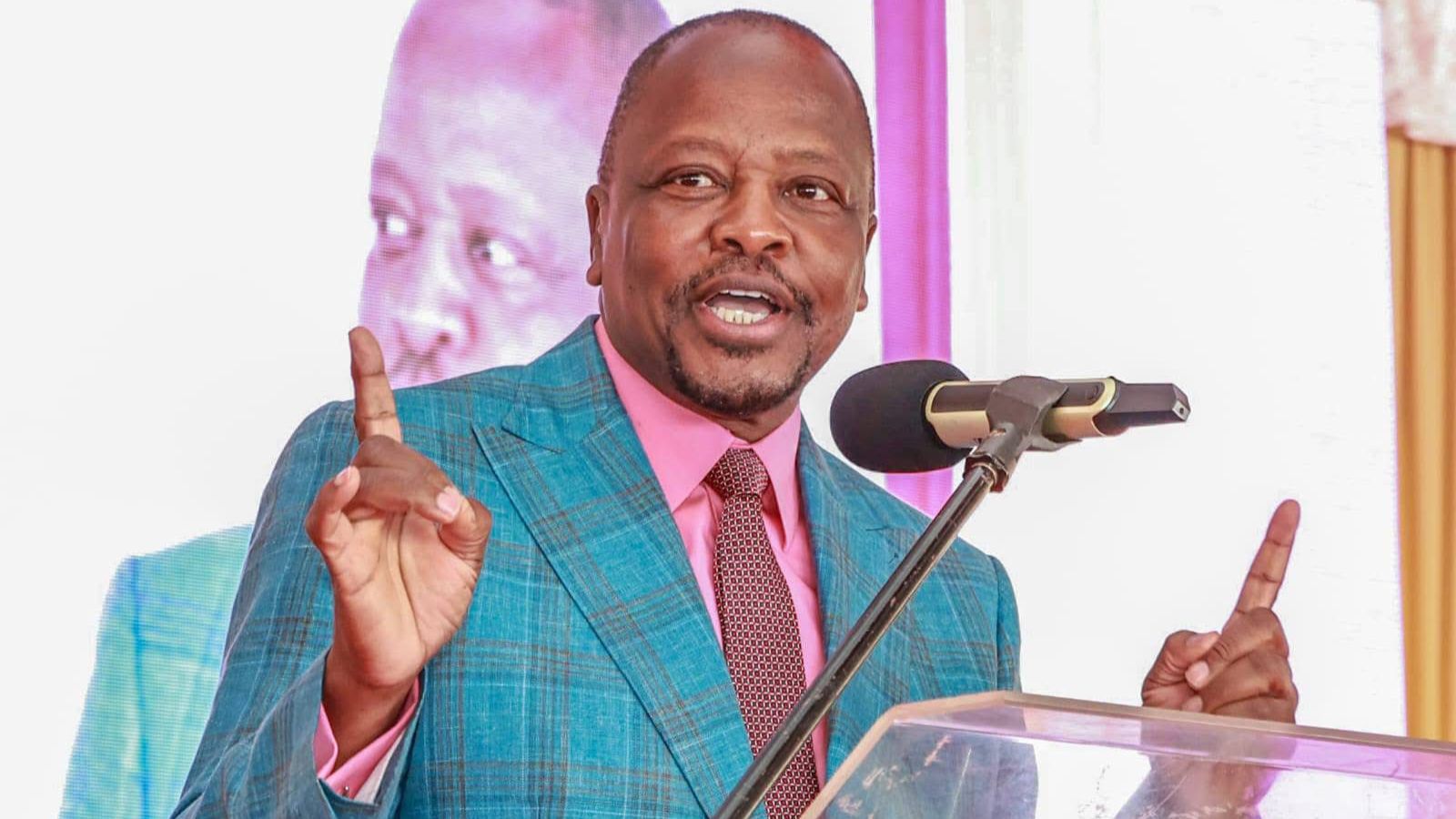State House spokesperson Hussein Mohamed has responded to an article published on The Economist that accused President William Ruto of steering the country in a dangerous direction.
In a letter addressed to the British media company, Mohamed defended Ruto’s leadership, citing reforms and social programs aimed at uplifting ordinary Kenyans.
“You claim that President William Ruto is leading Kenya to a ‘dangerous place’ (‘William Ruto’s wrong direction’, July 5th). President Ruto is in fact making the hard choices that others feared and reshaping Kenya’s future through bold, necessary reforms,” the statement read.
Mohamed noted that Ruto was elected on a platform of economic transformation and inclusion, with a promise to leave no Kenyan behind.
He added that for decades, the majority of Kenyans, particularly the poor, had been left out of the country’s development agenda.
Read More
"President Ruto was elected on a platform of economic transformation and inclusion, promising to leave no one behind. Since independence, the majority of Kenyans, especially the poor, have been underserved by government policies and development programmes.
"The administration's agenda includes policies on agricultural productivity, affordable housing, universal health care, micro- small- and medium-sized enterprise reforms, access to affordable credit, broadband connectivity through the digital superhighway roll-out and the growth of the creative economy," the statement continued.
State House went ahead to cite several key indicators showing significant recovery two years after Ruto took over power.
“Two years into his administration the Kenyan economy has shown remarkable resilience and recovery. Since August 2022, Kenya has recorded an average annual GDP growth rate of 5%, outperforming the global average of 3.3% and the regional average of 3.8%. The IMF recently projected Kenya’s GDP to reach $132bn, making it the largest economy in east and central Africa and the sixth-largest on the continent.
"Inflation, which stood at 9.6% in October 2022, fell sharply to 3.8% by May 2025, well below the Central Bank of Kenya’s 5% target, bringing relief to millions of households. The Kenyan shilling appreciated by nearly 20% against the dollar placing it among the best-performing currencies globally. The Central Bank rate has dropped from 13% a year ago to 9.75%, reducing borrowing costs and spurring private sector growth," the statement further read.

On social programs, Mohamed highlighted the launch of the Social Health Authority (SHA) as a milestone in fulfilling the promise of universal health care.
"Take universal health care, another promise that was repeatedly broken over decades. It is now taking shape under President Ruto. The Social Health Authority launched in October 2024 and has already registered 24m Kenyans, up from just 7m under a previous ineffective model that served only a privileged few. The SHA now delivers free primary health care, critical and chronic illness management, emergency care and insured secondary health care," the statement read.
State House also challenged The Economist’s claim that global businesses were retreating from Kenya, calling it unfounded.
"Neither does your claim that ‘several global companies have already left or scaled back operations’ in Kenya stand up to scrutiny. Which companies? On what basis? Special economic zones and export-processing zones have attracted 80 companies and created over 14,000 jobs.
"Kenya has become a hub for major global tech companies, including Microsoft and Amazon Web Services. Around the time of President Ruto’s recent visit to Britain, BUPA Global, Africa Specialty Risk, Lloyd’s and the European Bank for Reconstruction and Development announced plans to establish their Africa offices in Nairobi," the statement noted.
On concerns over the handling of the Gen Z protests, Mohamed insisted that Kenya remains a functioning democracy governed by law.
"Regarding the recent Gen Z protests, Kenya remains a robust and functioning democracy guided by the rule of law and the constitution. The right to protest is enshrined in law, and President Ruto has never stopped any citizen from exercising that right," the statement added.
Notably, State House acknowledged the tragic loss of lives during the protests, including that of Albert Ojwang, and assured that investigations are ongoing.
“It is true, and deeply tragic, that lives have been lost in recent demonstrations, and the government has acknowledged these painful events. The case of Albert Ojwang is particularly heartbreaking and regrettable, and it too has been formally acknowledged by the government. Investigations are ongoing.
"Several police officers have already been charged in court, with active prosecution under way. No democracy can flourish without accountability, and the administration remains firmly committed to upholding justice," the statement further read.
Mohamed also took the opportunity to address The Economist’s claims that Ruto’s image was tainted and that he should not seek re-election in 2027.
"Last year’s Gen Z-led protests were sparked by a finance bill. President Ruto listened. He withdrew the bill. He also invited the youth to a national dialogue. Finally, what do you mean by saying President Ruto’s image is ‘tainted’ and he should not seek re-election? Shouldn’t the voters, not The Economist, make that decision at the next election?" the statement concluded.






